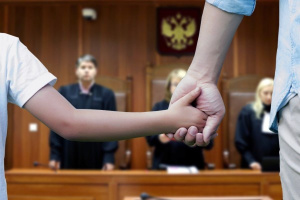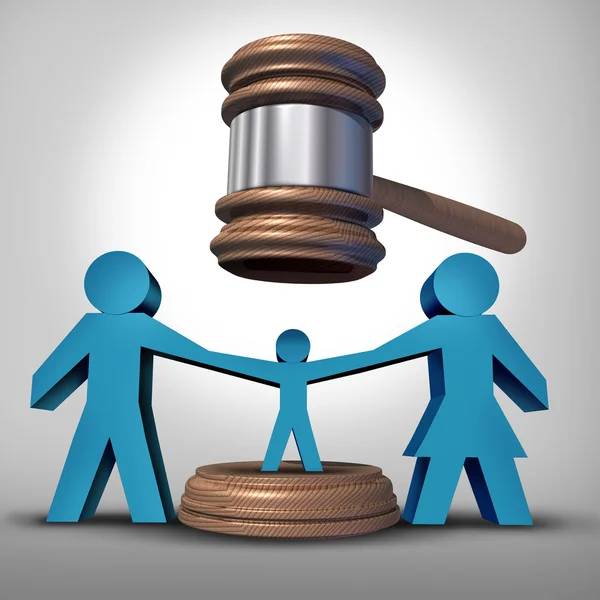Guardianship Concept, Rights and Responsibilities of Natural Guardianship

Guardianship plays a vital role in society, ensuring the well-being and protection of individuals who are unable to care for themselves. Guardianship is a legal framework that grants certain responsibilities and rights to appointed individuals or organizations. Here, we will explore the various aspects of guardianship, including its definition, the roles and responsibilities of guardians, and the significance of natural guardianship.
What is Guardianship?
Defining Guardianship: An Overview
Guardianship is a legal arrangement in which an individual or organization is appointed to assume the responsibility of caring for and making decisions on behalf of someone who is unable to do so themselves. This arrangement typically applies to individuals who are minors, adults with disabilities, or elderly individuals who are no longer capable of managing their own affairs.
In guardianship, the appointed guardian becomes a legal protector, responsible for the well-being, safety, and best interests of the person under their care, known as the ward. The guardian assumes various roles and responsibilities depending on the specific circumstances and the type of guardianship involved.
For minors, guardianship is often established when the child’s parents are unable to fulfil their parental duties due to various reasons such as illness, incarceration, or death. In such cases, a guardian is appointed to provide the necessary care, support, and decision-making authority on behalf of the child.
Adult guardianship comes into play when an individual is deemed to lack the mental capacity to make informed decisions about their personal, medical, and financial affairs. This may be due to cognitive impairments, mental illnesses, or other conditions that affect their ability to understand and manage their own affairs. The guardian assumes the responsibility of making decisions in the best interest of the adult ward and ensuring their well-being.
In the case of elderly individuals, guardianship may be established when they are no longer capable of managing their own affairs due to cognitive decline, dementia, or other age-related conditions. The guardian takes on the responsibility of providing necessary care, making medical decisions, managing finances, and ensuring the overall quality of life for the elderly ward.
The process of establishing guardianship typically involves petitioning the court, providing evidence of the individual’s incapacity, and demonstrating the suitability of the proposed guardian. The court will carefully evaluate the circumstances, conduct an investigation if necessary, and make a determination regarding the appointment of a guardian.
It’s important to note that guardianship is a serious legal responsibility, and the appointed guardian must act in the best interests of the ward, making decisions that promote their well-being and protect their rights. The court retains oversight over the guardianship arrangement to ensure that the guardian is fulfilling their duties appropriately.
Overall, guardianship serves as a protective legal mechanism that ensures the welfare and safety of individuals who are unable to care for themselves. It provides a means for responsible individuals or organizations to step in and provide the necessary support, care, and decision-making authority for those who need it most.
Legal Service
Our Attorneys

Let's Connect
- 0333-1127831
- [email protected]
- Karachi Office: M-51, M-52, Muneer Mobile Mall, Near Perfume Chowk Jauhar Chowrangi, Block 17, Gulistan-e-Jauhar, Karachi, Pakistan.
- Islamabad Office: Suite No. 5, 2nd Floor, Laraib Centre, Mangla Road, Karachi Company, G-9 Markaz, Islamabad, Pakistan
- Rawalpindi Office-1: Office # M-12, 1st Floor, Midway Centrum, 6th Road/Main Muree Road, Rawalpindi, Pakistan
- Rawalpindi Office-2: Office # 4, 2nd Floor, Al Hameed Plaza, Rashid Minhas Road, Marir Hassan, Rawalpindi, Pakistan
- Lahore Office: Office No.96, Near Main Gate, Model Town Courts, Lahore, Pakistan


Legal Framework and Guardianship Laws
In Pakistan, the legal framework surrounding guardianship is governed by various laws and regulations, ensuring the protection and well-being of individuals who are unable to care for themselves. The primary legislation concerning guardianship is the Guardians and Wards Act of 1890, which outlines the procedures and guidelines for establishing guardianship arrangements in the country.
Under the Guardians and Wards Act, the court has the authority to appoint guardians for minors, individuals with disabilities, or those who are otherwise incapable of managing their own affairs. The court carefully evaluates the circumstances and considers the best interests of the child or ward when making decisions regarding guardianship. It takes into account factors such as the moral and religious upbringing of the child, the wishes of the parents, and the ability of the proposed guardian to fulfil their responsibilities.
In addition to the Guardians and Wards Act, other laws and regulations in Pakistan contribute to the legal framework surrounding guardianship. For instance, the Family Courts Act of 1964 and the Muslim Family Laws Ordinance of 1961 provide further guidance on matters of guardianship, particularly within the context of family law. These laws ensure that guardianship proceedings are conducted in a fair and just manner, promoting the best interests of the child or ward while upholding the principles of justice and equity.
In a nutshell, Pakistan’s legal framework for guardianship is governed by the Guardians and Wards Act, which provides the necessary guidelines and procedures for establishing guardianship arrangements. The act, along with other relevant legislation, ensures that the best interests of the child or ward are taken into consideration during the appointment of guardians. By upholding these laws, Pakistan strives to protect and promote the well-being of individuals who require guardianship due to their age, incapacity, or other circumstance.
Roles and Responsibilities of Guardians
In the legal framework of guardianship, appointed guardians play a crucial role in providing care, support, and decision-making for individuals who are unable to manage their own affairs. This article delves into the various roles and responsibilities of guardians, highlighting their essential duties in ensuring the well-being and best interests of the ward.


Ensuring the Welfare and Safety of the Ward:
One of the primary responsibilities of a guardian is to ensure the welfare and safety of the ward under their care. This involves creating a nurturing and supportive environment that promotes the physical, emotional, and psychological well-being of the ward. The guardian must prioritize the ward’s safety, protect them from harm, and provide a stable and secure living arrangement.
Decision-Making Authority:
Guardians are granted decision-making authority over important matters pertaining to the ward. This includes making decisions related to healthcare, education, personal affairs, and legal matters. The guardian must exercise this authority responsibly, taking into account the best interests, values, and wishes of the ward. They should make informed decisions that align with the ward’s needs and preferences, while also considering any legal or medical requirements.
Financial Management and Asset Protection:
Guardians are entrusted with the responsibility of managing the ward’s financial matters and protecting their assets. This involves handling financial transactions, managing bank accounts, and ensuring the ward’s financial resources are used for their benefit. The guardian must maintain accurate records of income and expenses, invest assets wisely, and prevent any misuse or misappropriation of the ward’s funds.
Personal and Medical Care:
A significant aspect of a guardian’s role is to oversee the personal and medical care of the ward. This includes ensuring that the ward’s basic needs, such as food, clothing, and shelter, are met. The guardian should also coordinate medical care, appointments, and treatments, ensuring the ward receives appropriate healthcare services. They may need to make decisions regarding medical treatments, medications, and therapies, always considering the best interests and wishes of the ward.
Educational and Developmental Support:
Guardians have a responsibility to provide educational support and facilitate the ward’s intellectual and developmental growth. This may involve enrolling the ward in suitable educational programs, advocating for their educational needs, and collaborating with schools or educational institutions. The guardian should actively engage in the ward’s educational progress, ensuring they have access to appropriate learning opportunities that foster their personal and academic development.
As it is clear from the above discussion that the roles and responsibilities of guardians in the context of guardianship are multifaceted and significant. Guardians are entrusted with the welfare, safety, and decision-making authority of individuals who are unable to care for themselves. By ensuring the welfare and safety of the ward, exercising decision-making authority, managing finances and assets, overseeing personal and medical care, and providing educational and developmental support, guardians play a vital role in promoting the well-being and best interests of those under their care.
Types of Guardianship
In the legal system, guardianship encompasses various types that cater to different categories of individuals requiring care and support. This article provides an overview of the different types of guardianship, highlighting their distinct characteristics and the specific needs they address.
Guardianship for Minors:
Guardianship for minors refers to the legal arrangement where a guardian is appointed to assume responsibility for a child’s well-being and decision-making when the parents are unable to fulfil their parental duties. This type of guardianship ensures that the child’s physical, emotional, and educational needs are met. The guardian acts in the best interests of the child, providing a stable and nurturing environment while making decisions on their behalf.
Guardianship for Adults:
Guardianship for adults is established when an individual is deemed incapable of managing their own affairs due to mental or physical disabilities. This type of guardianship aims to protect vulnerable adults and provide them with the necessary support and care. The guardian assumes decision-making authority over matters such as healthcare, personal finances, and daily living arrangements. The focus is on promoting the individual’s well-being, autonomy, and dignity while ensuring their rights are protected.
Guardianship for the Elderly:
Guardianship for the elderly is designed to address the needs of older individuals who are no longer capable of managing their own affairs due to cognitive decline, dementia, or other age-related conditions. This type of guardianship ensures that the elderly person’s health, personal care, and financial matters are properly attended to. The guardian may make decisions regarding medical treatments, living arrangements, and financial management, always acting in the best interests of the elderly ward.


Temporary and Permanent Guardianship:
Temporary guardianship refers to a short-term arrangement where a guardian is appointed for a specific duration or purpose. It may be established when parents are temporarily unable to care for their child due to illness, military deployment, or other temporary circumstances. Permanent guardianship, on the other hand, is a long-term arrangement where a guardian assumes permanent responsibility for a child or adult who cannot be reunited with their biological parents or lacks the capacity to live independently. Permanent guardianship provides stability and a permanent family environment for the ward.
It is essential to understand the different types of guardianships in order to recognize the diverse needs and circumstances of those who need care and support.
Understanding the various types of guardianship is essential in recognizing the diverse needs and circumstances of individuals requiring care and support. Whether it is guardianship for minors, adults, the elderly, or temporary and permanent arrangements, the common goal is to protect and promote the well-being of those who cannot care for themselves. By establishing appropriate guardianship arrangements, society ensures that vulnerable individuals receive the necessary support, guidance, and decision-making authority to lead fulfilling lives while safeguarding their rights and best interests.
The Process of Obtaining Guardianship in Pakistan
The process of obtaining guardianship in Pakistan involves legal procedures and court intervention to ensure the well-being and protection of individuals who are unable to care for themselves. This article provides an overview of the steps involved in obtaining guardianship, highlighting the importance of each stage in establishing a guardianship arrangement.
Petitioning the Court:
The first step in the process of obtaining guardianship in Pakistan is to petition the court. The interested party, often a relative or concerned individual, files a formal application with the appropriate court seeking guardianship over the person in need of care. The petition must contain relevant information about the proposed guardian, the ward’s circumstances, and the reasons for seeking guardianship. It is essential to include details that demonstrate the need for a guardian and the suitability of the proposed guardian to fulfil the role.
Guardianship Evaluation and Investigation:
Once the court receives the petition, it initiates a thorough evaluation and investigation process. This stage aims to gather information and assess the merits of the guardianship request. The court may appoint an evaluator or investigator to conduct interviews, visit the ward’s residence, and review relevant documents. The purpose of this evaluation is to determine the ward’s incapacity, assess the proposed guardian’s suitability, and gather evidence to support or refute the need for guardianship. The evaluator’s findings play a crucial role in shaping the court’s decision regarding the appointment of a guardian.
Guardianship Hearing and Decision:
Following the evaluation and investigation, the court schedules a guardianship hearing. At the hearing, all relevant parties have an opportunity to present their arguments, provide evidence, and express their views on the guardianship matter. The court carefully considers the interests and well-being of the ward, the suitability of the proposed guardian, and any objections raised during the hearing. Based on the evidence presented and the best interests of the ward, the court makes a decision regarding the appointment of a guardian. The court’s decision may grant full guardianship or establish limited guardianship, depending on the specific circumstances.
Pakistan has a structured legal process for obtaining guardianship
Obtaining guardianship in Pakistan involves a structured legal process to ensure the welfare and protection of individuals unable to care for themselves. By petitioning the court, undergoing a thorough evaluation and investigation, and participating in a guardianship hearing, interested parties can establish a legal guardianship arrangement. This process ensures that the appointment of a guardian is based on careful consideration of the ward’s needs, the suitability of the proposed guardian, and the best interests of the individual in need of care. Through this process, Pakistan’s legal system strives to safeguard the rights and well-being of those requiring guardianship, providing a framework that upholds their interests and ensures their care and protection.
Natural Guardianship: A Special Case
- A. Definition and Concept of Natural Guardianship
- B. Rights and Responsibilities of Natural Guardians
- C. Natural Guardianship vs. Court-Appointed Guardianship
- VI. Alternatives to Guardianship
- A. Power of Attorney
- B. Advance Healthcare Directives
- C. Living Trusts
- D. Supported Decision-Making
- Conclusion: Guardianship is a crucial legal concept that provides protection and support for individuals who are unable to care for themselves. Understanding the roles, responsibilities, and types of guardianship is essential for anyone involved in or affected by this legal framework. Additionally, recognizing the significance of natural guardianship helps us appreciate the inherent bond and rights of parents or family members in caring for their loved ones. By providing necessary care and guidance, guardians ensure the well-being and quality of life of those under their protection.
